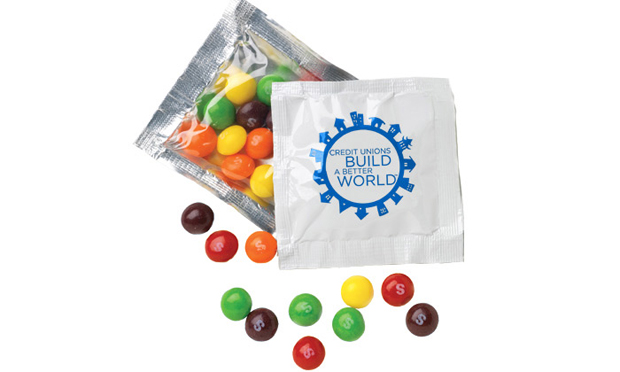Demonstrators plan to withdraw money from big banks on Saturday. A handful of credit unions and other progressive institutions see it as an opportunity. But are they really any better than the banks?

This Saturday, Nov. 5, is being promoted by several Occupy-Wall-Street affiliated groups, including MoveOn.org, as Bank Transfer Day, aka Move Your Money Day, a day for consumers to show their dissatisfaction with bailouts and billions in profits by cutting up their Citibank or Bank of America debit cards in favor of a nonprofit credit union or community bank.
In recent weeks, angry protesters have surrounded bank branches on both coasts. Some account holders were even arrested while trying to close their accounts--not a pleasant customer service experience on either side of the equation. Some even credit the movement with Bank of America's recent reversal on debit card fees.
But one company's PR nightmare is another's business opportunity, particularly for those in the financial industry who are trying to break from the pack by offering idealism, integrity, and lower costs as selling points. Credit unions across the country are adding Saturday hours for the 5th and reaching out to potential switchers via social media. CUNA, the trade association of the nation's credit unions, has created a T-shirt to promote Bank Transfer Day, and the Credit Union League of New Jersey is running radio ads.
New Resource Bank, a small bank in San Francisco with extensive green initiatives that invests in cleantech and other sustainable companies, last year became the first publicly traded company to file as a B-Corp, incorporating triple-bottom-line ideals into its charter. They're running a "Move Your Money" campaign, where those who join by November 15 will be rewarded with a $25 donation to one of several nonprofits. "From our normal 25 accounts a week, we've been seeing 15-20 new accounts a day," says CEO Vince Siciliano. "People are coming in and saying, I've been thinking about this for a long time, and this Occupy Wall Street and Move Your Money Day have pushed me off the wall of inertia."
And recently just blocks from Wall Street, three self-dubbed "disruptive" financial services companies held a media event titled "Beyond Occupy Wall Street: Creating Industry Change for the Greater Good." "Our offices are just a few blocks away from Liberty Plaza," said Jon Stein, CEO of Betterment.com, who organized the event. "We took a couple people from the office to go down and walk around. I was surprised by the focus--many people were talking about the same things we were interested in when we started Betterment." Stein used to consult for large banks, and witnessed lots of bad behavior, like a bank in Ohio that was purposely targeting poor customers with low balances, reaping 80% of its checking account profits from overdraft and other fees; and a broker who took the opposite side of every trade that reached his desk, with the result that 90% of his customers lost all the money in their accounts. He started Betterment as an online place for ultra-low-cost, ultra-simplified investment management: Bundles of exchange-traded funds come in just two flavors, stocks and bonds, with low fees ranging from 0.3 to 0.9%. At the press conference, Stein, along with Jason Henrichs of online rewards bank PerkStreet Financial and Yaron Samid of antifraud service BillGuard, spoke up about the "broken" financial industry and in favor of fairly priced, responsible financial services.
"Everyone at our company was at first very wary of any involvement with Occupy Wall Street," says Stein. "We’re not down there handing out coffee or anything, but I had to make the case internally that this was something that resonated with me and that I believed we should do something about it."
Fast Company spends a lot of space covering new financial companies that claim to do things differently. Often, like Betterment and PerkStreet, these startups rely on technology to cut costs and pass the savings along to customers. But it remains to be seen whether having principles can be profitable under current regulations. A cautionary tale is that of Amalgamated Bank. The only union-owned bank in the United States, it's been drawing lots of press, since it's where the Occupy Wall Street movement itself has deposited over $500,000 in donations. But it's also under FDIC investigation for falsifying how it books delinquent loans to spruce up its balance sheet--exactly the kind of bad behavior that the folks at Liberty Plaza are protesting.
[Image: Flickr user jayantnandan]